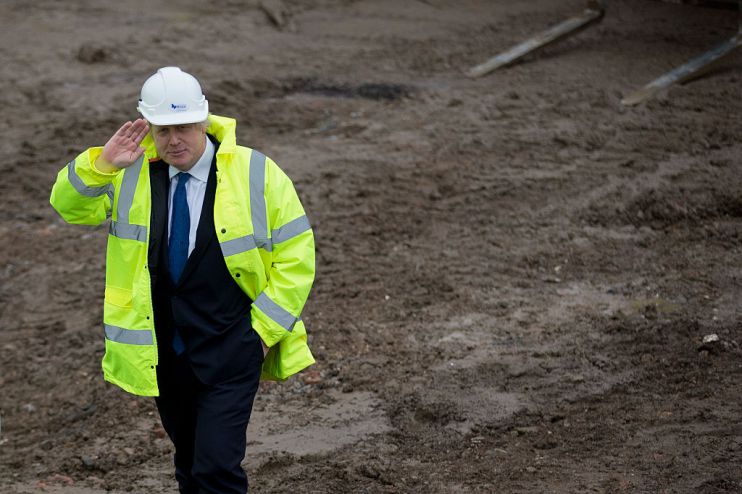Boris can lead a Conservative council housing revolution

With Boris Johnson now undisputed world king of the post-Brexit scene, the only relevant policy debates are those going on inside the government itself. These are yielding unusual fruit.
Esther McVey, a deep-dyed Thatcherite and an advocate of blue-collar Conservatism, has been arguing for more council housing. The housing minister wants to help those “left behind” voters who broke Labour’s red northern heart.
However, she has reportedly clashed with her boss, housing and communities secretary Robert Jenrick, who is in the more conventional Tory “property-owning-democracy” mould.
But McVey is right — it is time for another look at council housing, and this Conservative government is ideally placed to do it.
Johnson is enthused by regional regeneration, infrastructure projects, and levelling up the UK. His chief aide Dominic Cummings, meanwhile, is deeply interested in applying scientific research and development to solve big problems and create new industries.
If they combine their enthusiasms, Johnson and Cummings could realise a once-in-a-century opportunity to solve the UK’s housing crisis. To do it, they need to revive the One Nation Conservative party tradition of mass council house building, and use it to make the UK a world-leading location for green modular house building. That way, the housing crisis gets fixed, and the country gets a new high-tech industry.
No UK housing shortage has ever been cured without a mass council house building programme. From 1945 to 1979, all British governments knew this and invested heavily in (mostly) good and plentiful council homes.
Unlike private house builders, who are bound by their duty to shareholders, the state can invest to solve housing shortages, not solely to make a profit from them.
Government borrowing costs are currently at an all time low, and the north of the country is lacking both infrastructure and housing. The Prime Minister therefore has a historic chance to borrow both to build council housing and to construct transport links within and between towns and cities across the Midlands and the north.
The new houses could be called “Boris Homes”, to remind tenants of their benefactor. A project like this, which breaks decisively with the “austerity” of the last two Tory Prime Ministers, could help cement Johnson as the long-term electoral friend of Workington man. The “Boris” branding would deal with George Osborne’s old fear that council housing only creates Labour voters.
Of course, governments used to rely on local authorities to build council homes, but that was before the centralising force of Thatcherism forced them to slash their construction capabilities. Most UK local authorities, even if asked, no longer have the resources, experience and manpower to launch a transformative council house building programme.
So the government should set up a platform of all the major UK institutions, working closely with regional mayors and local authorities, to create Council Housing 2.0: a giant joint venture corporation to build 150,000 new council homes a year.
The government could incentivise and match institutional investment to build the homes, and then share (along with the regional authorities) in their long-term rents.
Now that we are definitely leaving the EU — in just one week — the government should also cut the utterly tedious procurement rules that bed-block big projects.
These council houses need to be built quickly, cost-effectively, and sustainably. Cummings has plans to create R&D centres of excellence in the north. To combine that need and his ambition, the government should invest heavily in a campus for the research, development and manufacture of modular housing.
A modern modular factory can build a semi-detached, highly-energy efficient house — that will last 100 years — in 14 days for less than £70,000.
If the government gets this modular R&D cluster right and attracts global investment and talent, it will solve the UK’s housing crisis and incubate a new British modular export industry that can help other countries solve theirs.
For too long, UK housing policy has been held back by prejudice and party politics. Council housing was a dirty word for generations of Conservative politicians. But it is one of our country’s great civilising projects, providing shelter for the poor and vulnerable.
If Johnson is brave, council housing can become an engine for levelling up whole regions and making the UK the global leader in a cutting-edge technological field.
You have ridden a Boris Bike — get ready to live in a Boris Home.
Main image credit: Getty